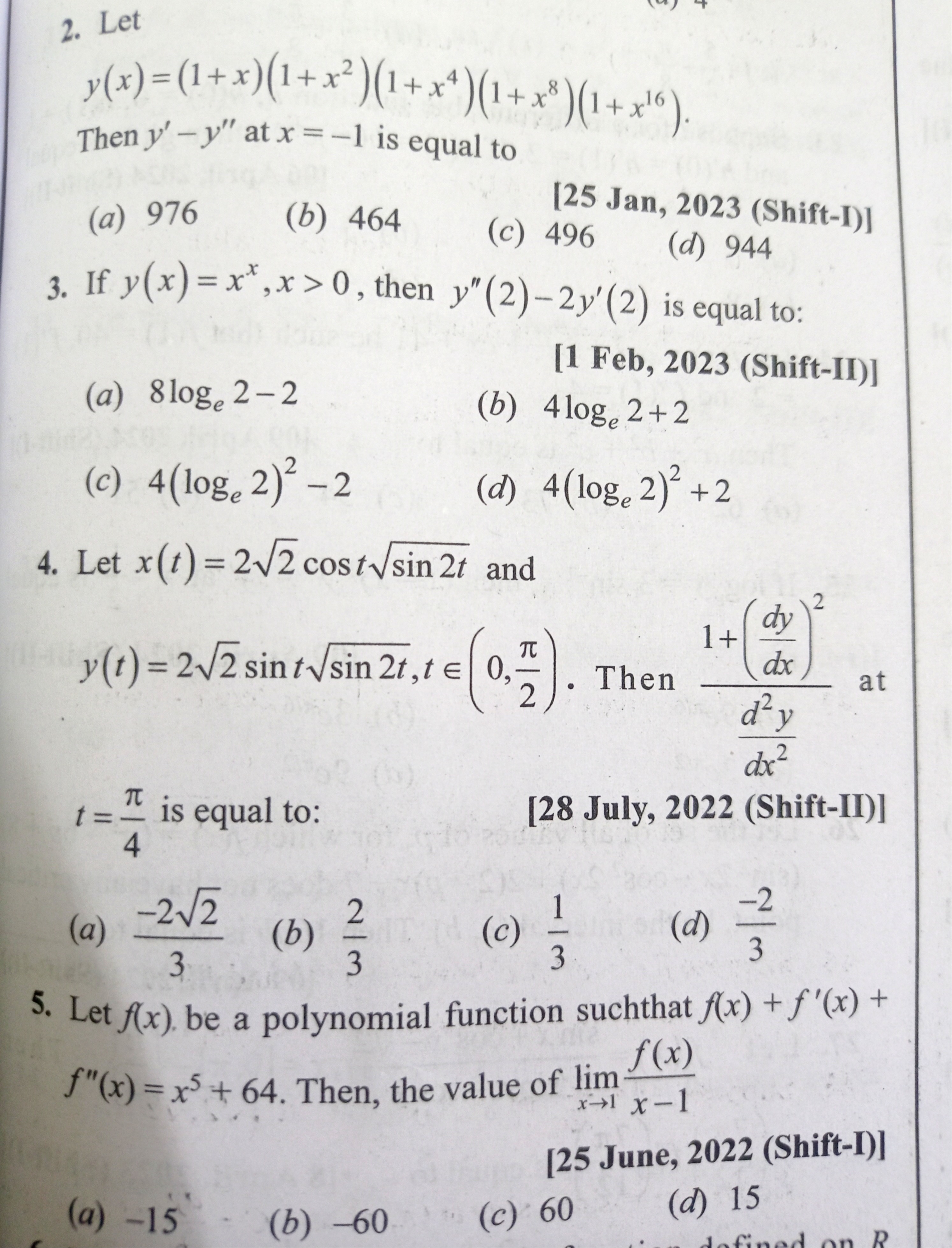Question
Question: Let $y(x) = (1+x)(1+x^2)(1+x^4)(1+x^8)(1+x^{16})$. Then $y' - y''$ at $x = -1$ is equal to...
Let y(x)=(1+x)(1+x2)(1+x4)(1+x8)(1+x16). Then y′−y′′ at x=−1 is equal to

A
976
B
464
C
496
D
944
Answer
496
Explanation
Solution
- Simplify y(x): Multiply y(x) by (1−x) to get (1−x)y(x)=1−x32.
- Differentiate implicitly:
- First derivative: −y(x)+(1−x)y′(x)=−32x31.
- Second derivative: −2y′(x)+(1−x)y′′(x)=−992x30.
- Evaluate at x=−1:
- y(−1)=0 (due to the (1+x) factor).
- Substitute y(−1)=0 into the first derivative equation to find y′(−1)=16.
- Substitute y′(−1)=16 into the second derivative equation to find y′′(−1)=−480.
- Calculate y′(−1)−y′′(−1): 16−(−480)=496.
